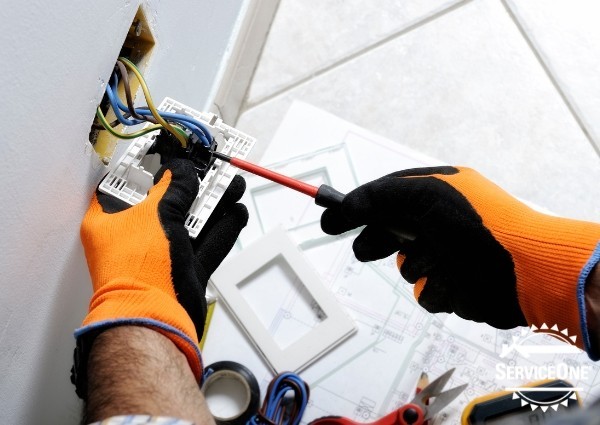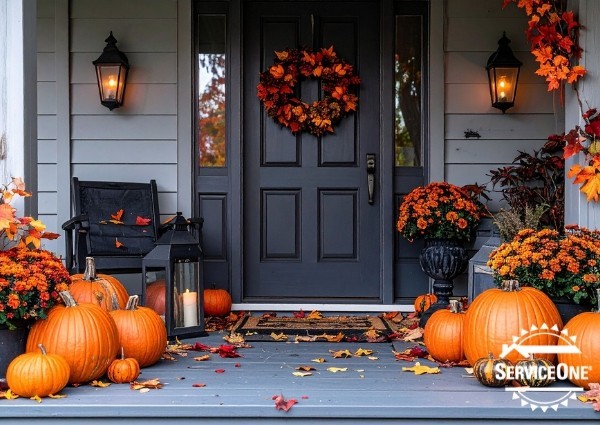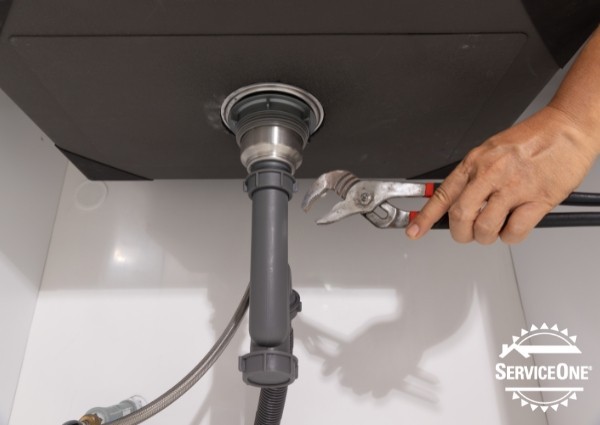The summer months here in the Midwest are usually filled with thunderstorms of all sizes! As we have seen in previous years, even the smallest thunderstorms could leave your home without power for an extended period of time.
During a summer storm, it’s important that you are keeping your home and your family safe. When your home’s power goes out, food in your freezer and refrigerator only has so much time before it goes bad. You are also left with no lighting or power to charge any of your devices. This is where backup generators come into play; to keep you and your home safe when you need it most.
At ServiceOne, we discuss how does a generator power a house and why all Midwest homeowners should consider purchasing a backup generator!
Why do you need a backup generator?
Peace of mind
Having a backup generator for your home will ensure you that you will always have power, no matter what. If a storm comes through and wipes out your power, you will never have to worry! Your electronic equipment won’t suffer the consequences of a power surge. Your heating and cooling system will continue to keep your home feeling comfortable. Overall, a home generator allows you to keep your household running at all times!
Turns on by itself
How does a generator power a house? It will automatically power on once your home’s power goes out. That’s right, you won’t have to go outdoors or walk around in the dark to flip a switch. With a whole home backup generator, it will switch over reserve power automatically.
This feature of small home generators is what sets them apart from portable generators. Although portable generators offer many benefits outside of your home, a small home generator is the better option when it comes to powering your home.
Things to consider
When you purchase a backup generator for your home, there are some things you will need to consider.
Size of generator
The size of generator needed for your home will depend on how many appliances you will want connected, as well as the overall size of your home. Keep in mind how many appliances you want in case of an emergency power outage, including your kitchen, laundry room, HVAC and other home systems.
Location of generator
Another thing you will have to determine is where you want your backup generator to be located. Usually, small home generators are located in your home, either in your basement or close to your other home systems such as your furnace and HVAC system.
Type of fuel
To power your home during a power outage, home generators rely on fuel. When your home generator is installed, it usually connects to your home’s existing fuel source. However, you do have a few more options. When installing a home generator, you can choose between natural gas, diesel or liquified petroleum as your fuel source.
Hire a professional electrician
So how does a generator power a house? Even with general knowledge, it can still be a little confusing. That is why you will need a professional electrician to come and properly install your backup generator. You will want to ensure that you are hiring a licensed electrician like one at ServiceOne!
Having a generator can protect your family against food shortages, house fires, CO2 poisoning, and cold. It can also safeguard your property and appliances against costly damage. Especially during storm season here in the Midwest, it’s a good idea to understand how a generator powers a house and then get one professional installed to keep your home and family protected!
At ServiceOne, we are a distributor for Generac generators. We can install and maintain your small house backup generator and fix any issues that may come up. Visit our website or give us a call today to learn more about our backup home generator products and services!



